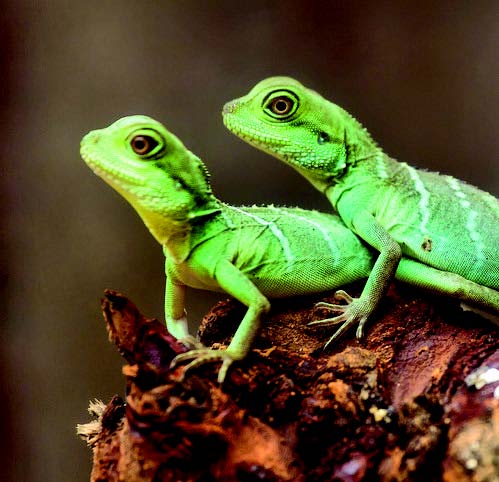Life as a reptile enthusiast can range from exciting to laid back. There is, however, one thing that all reptile lovers have in common, and that is their absolute passion for caring for their cold-blooded pals.
One of the most important things to consider when taking care of reptiles is their living space. Unlike regular dogs or cats who can easily adapt to their human’s home without any special accommodations, reptiles need customized enclosures that mimic their natural environment. Most reptile lovers place their enclosures in a separate room, in a common area in the house, or even outdoors, but some reptile enthusiasts take their love for their cold-blooded friends further by welcoming them to the most comfortable area in their home: the bedroom.

A pet reptile may seem like the ultimate roommate for the dedicated reptile lover, but there are many things to keep in mind when sharing rooms with any cold-blooded friend.
Size and space
Depending on the type of reptile you share your home with or plan to adopt, each has their own needs and requirements to live a long and healthy life.
Some lizards, such as iguanas, monitors, and tegus, tend to grow very large (some reach the size of a medium sized dog) and thus need spacious rooms. Other reptiles, such as turtles, geckos, and certain types of snakes and frogs, thrive in more compact spaces.
Before bringing or deciding to transfer any animal to a bedroom, always consider the size that they will grow into as they reach adulthood. Make sure they have enough space to move freely around in.
The right conditions
Simulating the temperature and humidity of a reptile’s natural environment should also be a priority when housing them inside a bedroom. They live in an assortment of habitats, including deserts, rainforests, trees, cliffs, burrows, and caves.

Since they are cold-blooded animals, reptiles cannot tolerate cold climates: Many of them may get sick when exposed to very low temperatures. For example, keeping the air-conditioning running the whole night is a big no-no unless the keeper can provide a source of warmth, such as nighttime heat bulbs, under-tank heaters, sand, or other heating methods in or near their enclosures. Some reptiles are more sensitive than others, so make sure to monitor their temperature and humidity well. It’s best not to make the room very cold at night – using either an air-conditioner with the thermostat set a tiny bit below room temperature or a fan to keep cool may be safe for your roomie.
Don’t forget to provide a UVB bulb inside the enclosure if needed. Although most reptiles need a good source of UVB daily, some species are more sensitive to bright lights. Continued exposure to highly-concentrated UV rays, when they have no need for it, can damage their skin and eyes.
When it comes to humidity, not all animals have the same preference as some like it drier than others. Higher humidity has its benefits: It makes breathing easier, it lessens allergies, and helps hydrate the skin; however, the moisture in the air may also cause mold and bacteria to breed and spread through the room, especially as reptiles tend to defecate in the same place. Make sure to ventilate the room once in a while to bring fresh air in.
Housekeeping
Reptiles are usually very messy animals. They may redecorate their enclosures to their liking (whether you like it or not), leave uneaten food all over the place, dig up soil, leave their sheddings around, and even release their bodily wastes in the same space they sleep in. Because of these, and for the sake of the health of both human and reptile, it’s extremely important to regularly clean the enclosure. This means routinely changing their water, removing rotting vegetables or leftover carcasses after eating, and cleaning up other wastes.

There are some remedies that reptile lovers incorporate in their daily lives in order to control the smell and mess. Personally, I choose to use a substrate with deodorizing capabilities, such as Zoomed’s Reptifresh, or one that has natural isopods in it. Isopods are the tiny bugs that consume animal waste and rotting vegetables. Please be aware though that not all bugs found in substrates are good; some may be harmful to the reptile, such as mites; it is important to double-check to prevent infestations.
Leaving an open jar of baking soda next to the enclosure may also be useful as this can help deodorize the smell in the room. Always remember to ventilate the space and avoid spraying commercial air fresheners as this may be toxic to animals.
Herpie roomie
One can very well have a reptile as a roommate given the correct circumstances, but always remember to consider their individual needs and requirements, especially when sharing your room with multiple species. Always take extra precaution when deciding how to keep them indoors, and continue to be a responsible reptile keeper.
Happy Herping!
This appeared in Animal Scene magazine’s December 2019 issue.
You might want to read:
– The Argentine black and white tegu
– It’s not easy being green: The life of an iguana
– Largest flying animal in history identified: study





